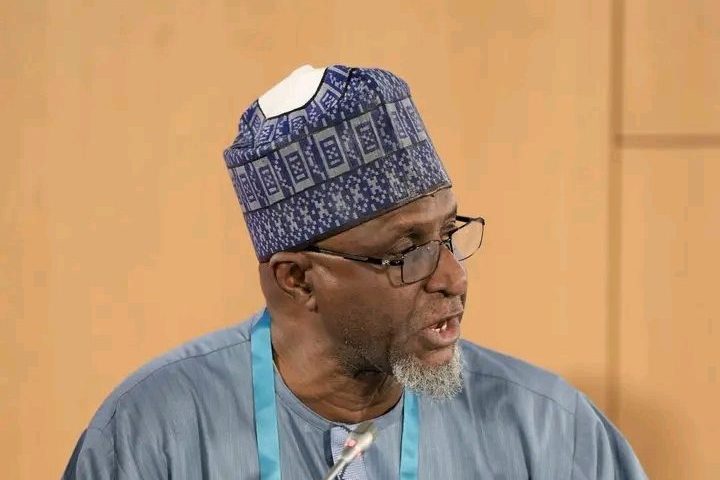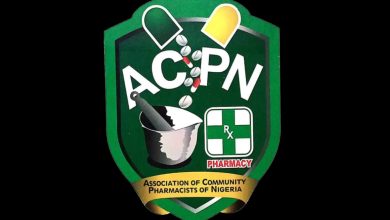Many Nigerians Still At Risk Of Lead Poisoning, Environment Minister Says
Environment Minister Balarabe Lawal has warned that millions of Nigerians, especially children and pregnant women, still face severe lead poisoning risks.
He urged stronger national action to achieve a lead-free environment.
The Minister of Environment, Balarabe Lawal, has raised alarm that many Nigerians, especially children and pregnant women, remain at serious risk of lead poisoning despite government efforts to curb exposure.

Speaking during the 2025 International Lead Poisoning Prevention Week (ILPPW) held on Thursday at the Federal Ministry of Environment, Abuja, Mr. Lawal, represented by the Director of Pollution Control and Environmental Health, Bahijjahtu Abubakar, said the country must intensify efforts toward creating a lead-free environment.
Lead, a toxic metal commonly used in paints, batteries, and cosmetics, can cause severe and irreversible damage to the brain, kidneys, and nervous system. According to the World Health Organization (WHO), children are particularly vulnerable because their developing bodies absorb lead more easily.
The ILPPW, observed annually in the third week of October, aims to raise awareness about the dangers of lead exposure, promote preventive actions, and accelerate the global phase-out of lead in paint and other products.
Persistent dangers and Nigeria’s response
Mr. Lawal described lead poisoning as one of the world’s most preventable environmental health problems but noted that millions remain affected globally, particularly children under five.
“Unfortunately, many Nigerians, especially in rural and mining communities, continue to face these dangers from contaminated soils, unsafe mining and recycling activities, lead-based paints, cosmetics, and other consumer products,” he said.
He explained that exposure to lead can result in neurological damage, learning disabilities, anaemia, and reduced IQ in children, while adults may suffer from hypertension, kidney damage, and reproductive issues. Pregnant women, he added, are also at risk of miscarriage and premature birth.
The minister recalled Nigeria’s major response began after the 2010 Zamfara lead poisoning outbreak, which claimed hundreds of children’s lives. Since then, remediation efforts have been carried out in Zamfara, Niger, and Kaduna States, restoring safer living conditions in affected communities.
Mr. Lawal said the Federal Ministry of Environment, in collaboration with its partners, has also developed standards to regulate lead content in paints and products, cleaned up contaminated mining areas, and trained local miners on safer practices.
He added that the government continues to work with WHO, UNICEF, UNEP, and organizations such as Pure Earth and Resolve to Save Lives to raise public awareness and collect data on lead exposure in Nigeria.
New interventions and call to action
The minister announced that Nigeria is now implementing a National Lead-Free Nigeria Initiative aimed at completely phasing out lead-based products by 2030. The plan, he said, includes strengthening enforcement through agencies such as the National Environmental Standards and Regulations Enforcement Agency (NESREA) and the Standards Organization of Nigeria (SON).
Other parts of the initiative include promoting cleaner mining technology, rehabilitating abandoned mine sites, and engaging private industries to adopt safer production methods and corporate social responsibility programmes focused on child health and environmental safety.
Speaking on behalf of the ministry, Bahijjahtu Abubakar said this year’s ILPPW theme serves as both a warning and a call to action, noting that lead poisoning is a “silent threat” with long-term consequences.
She cited WHO data showing that one in three children globally, about 800 million, have blood lead levels above safe limits, while the Institute for Health Metrics and Evaluation (IHME) estimated that 1.5 million deaths in 2021 were linked to lead exposure.
Abubakar added that although Nigeria has set a legal limit of 90 parts per million for lead in paint, many locally sold paints still exceed 600 micrograms per gram, mainly due to weak enforcement and low awareness.
In her remarks, the Executive Director of Resolve to Save Lives (Nigeria), Nanlop Ogbureke, said lead poisoning is entirely preventable and urged greater accountability from government and industries.
“No child should lose their future because of avoidable exposure to a toxic substance,” she said. “This year’s theme reinforces the global call to act now and eliminate lead from all harmful sources.”
Ogbureke commended the ministry for improving coordination and awareness, adding that her organization will continue supporting government and community partners to reduce lead exposure and strengthen laboratory detection systems.



